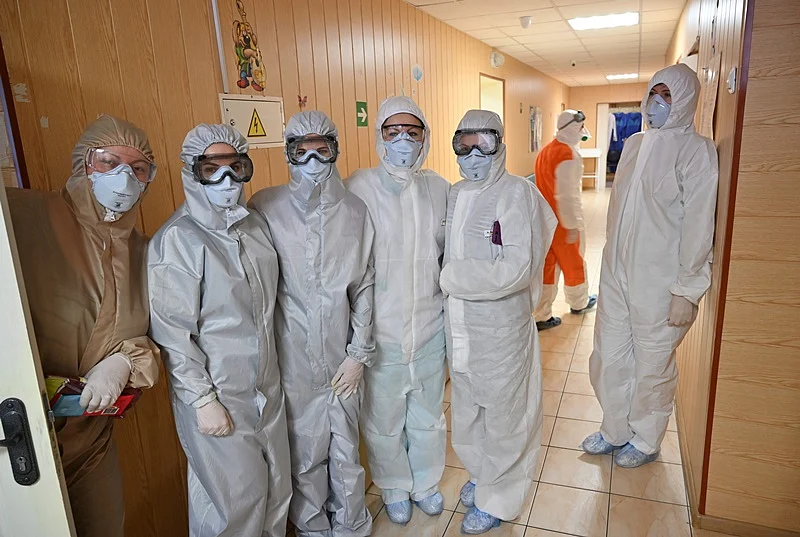While India has embarked on clinical trials for Covaxin, a possible vaccine for Covid-19, at the Nizam's Institute of Medical Sciences in Hyderabad, 42-year-old NRI Deepak Paliwal has done India proud by already having participated in Phase 2 of the clinical trial of a vaccine conducted by Oxford University, UK, in collaboration with the Pune-based Serum Institute of India.
The vaccine being tested is ChAdOx1 nCoV-19, made from the virus ChAdoX1, a weakened version of the common cold virus - adenovirus - obtained from chimpanzees and genetically modified to make it impossible to grow in humans. To this virus, genes that make proteins from the Covid-19 virus - Spike glycoprotein - were added. These play an important role in the infection pathway of the Covid-19 virus.
“I got a message from one of my friends, asking if I wanted to be part of a trial that was happening. At that point in April, the UK was in very bad shape, with many cases. I looked up the Oxford University website for details and then went to St George Hospital, London, 15 kilometres away from where I live, to register,” said Paliwal. Phase 2 of the trial was being conducted among 1,000 healthy volunteers aged 21-50 years, across five centres in the UK.
Paliwal is a pharmaceutical consultant who has been in London for the past 12 years. His wife, a pharmacist, and her friends initially dissuaded him, but he decided to go ahead, telling them only one week after being administered the first injection. Before the Phase 2 trial could begin, he had to undergo a health screening on April 16. Then he was made to watch a video about the process and informed about the risk factors, which ranged from organ damage to mortality. But Paliwal was undeterred and wanted to go ahead. His selection as a participant was confirmed on April 30.
While Phase 1 of the vaccine trial had involved animal testing, Phase 2 was going to be conducted on 1,000 healthy individuals who had volunteered, including Paliwal. The third phase will involve testing a larger group of people. Paliwal cycled to St George’s Hospital on the first day of the trial, having been requested not to use public transport in view of the rising number of Covid-19 cases. He received the first shot at 11am on May 11, after which he waited for two hours.
Paliwal confesses to being restless on the eve of the trial, thinking of his mother, sister and other family members in India and his father, who had passed away four years ago. But he also thought of the multitudes of people who had succumbed to the virus, including his friend’s mother-in-law and his resolve to volunteer for the second phase of the trial prevailed.
“I felt nothing after the first vaccine, apart from skipping a beat. I did not cycle back, afraid my head might spin. That evening, I had shivers and fever. My arm hurt and I had fever on the fifth day but I wanted to do it for myself. I had not been working for three months. Since I was not using my mind, I said, let me use my body. I wanted to do something for humanity, no (not for any) caste, race or religion, as I represented my country,” Paliwal explains. The pharmaceutical consultant has donated platelets many times in the past and says the trial, which involved his being administered two injections, was less painful.
Forty per cent of nurses and doctors who have died because of the virus in the UK were from the BAME - Black, Asian, Minority and Ethnic - population. Researchers wanted to try this vaccine on someone from this group, to see how it worked.
“My family was worried, but my mother is proud of me. Even those who don’t know me are proud. Until yesterday I was just like any other ordinary person, nobody sent me messages. Today, I feel I have done something big. There are risk factors always and there is a 90-day follow-up and another after six months,” he informs. Besides, he must daily fill in his health parameter details online, to keep the research team informed. The process continued for 29 days, with Paliwal developing antibodies on the Day 28, suggesting that the vaccine was working.
Phase 3 of the trial began on June 21, involving 10,000 volunteers aged 15-80 years, with 10,000 patients from different countries, as the number of cases in the UK were falling. Paliwal chose to talk about his experience, as he wanted to send out a positive message at a time when humankind is at stake.







